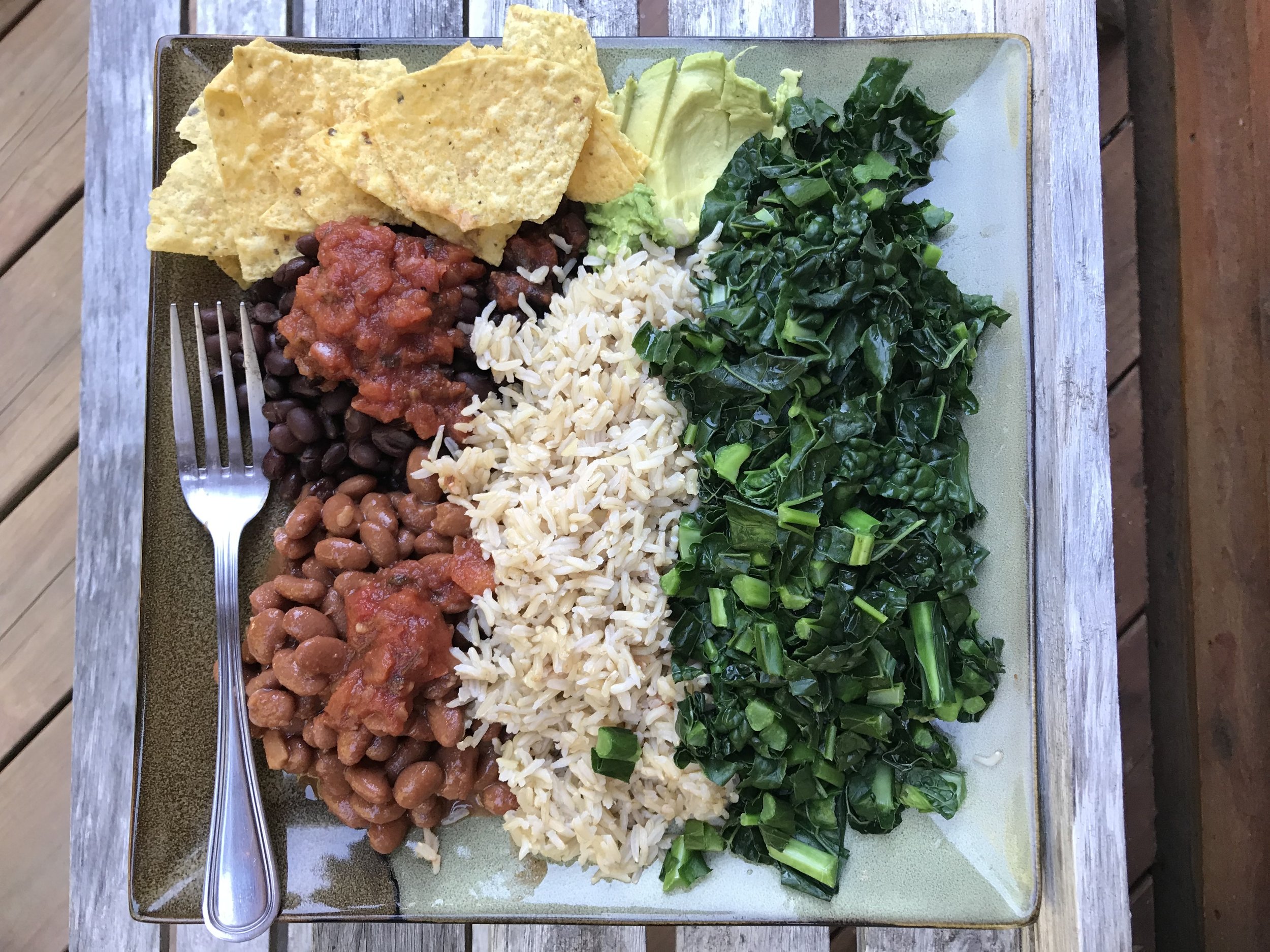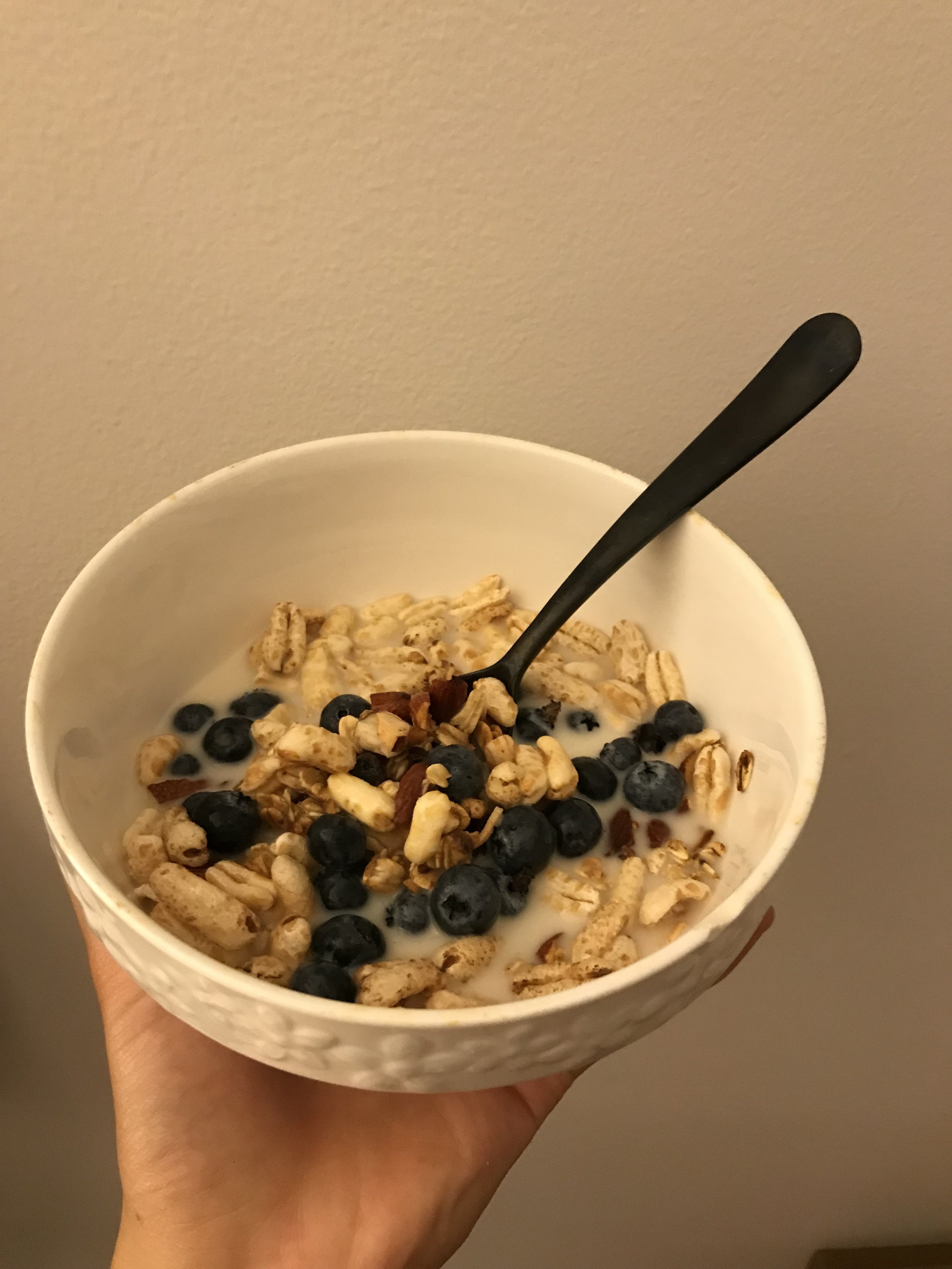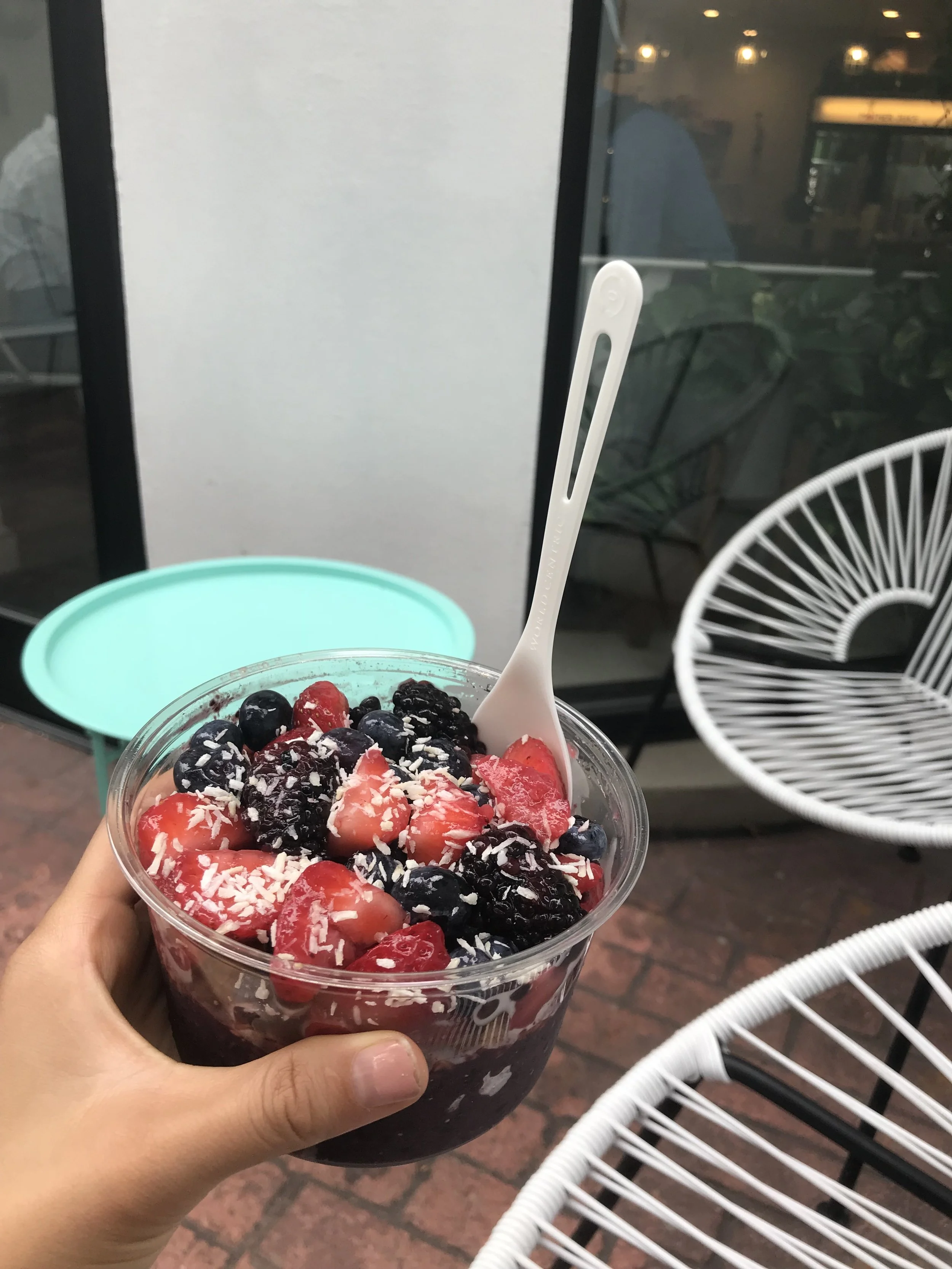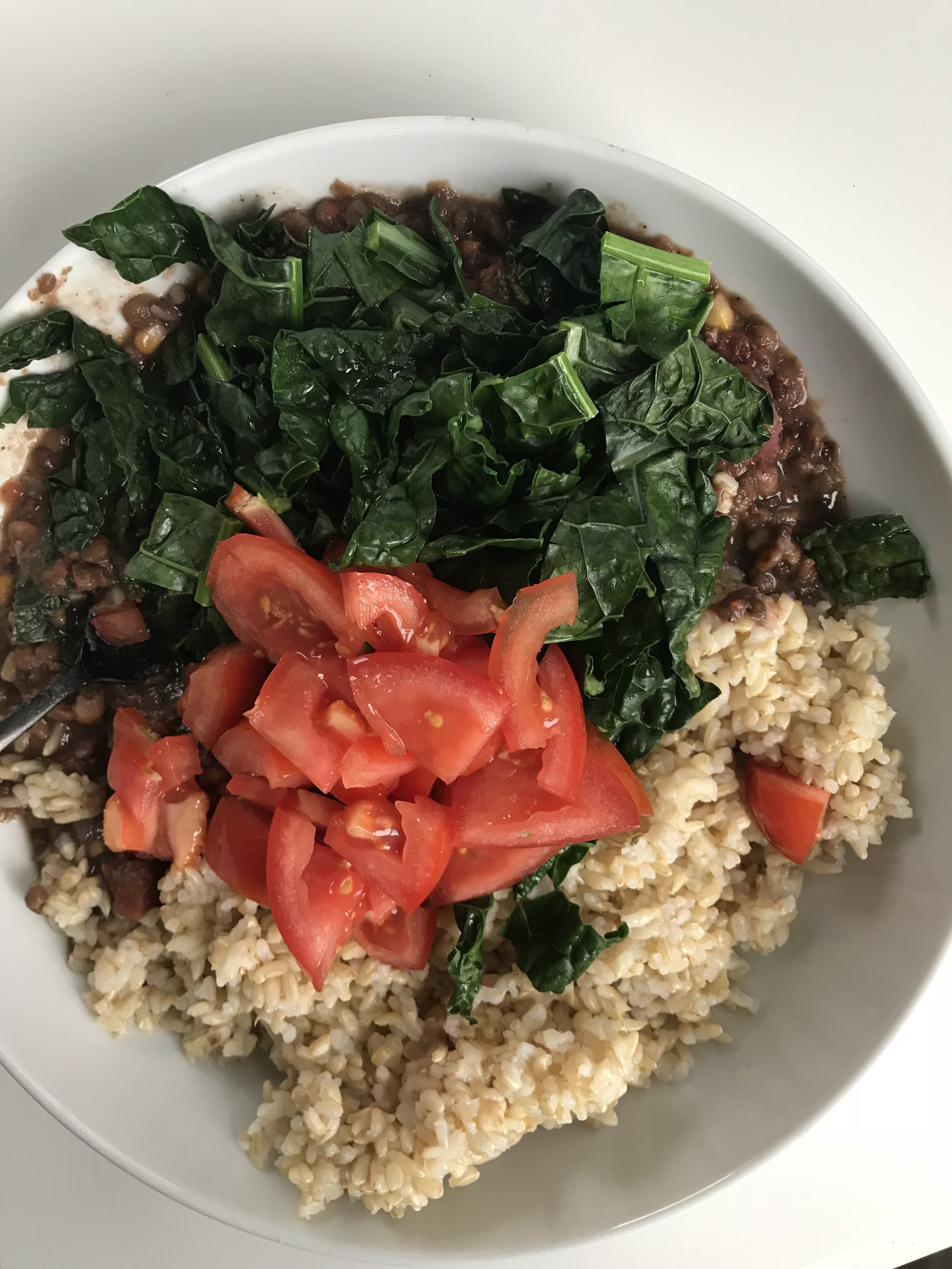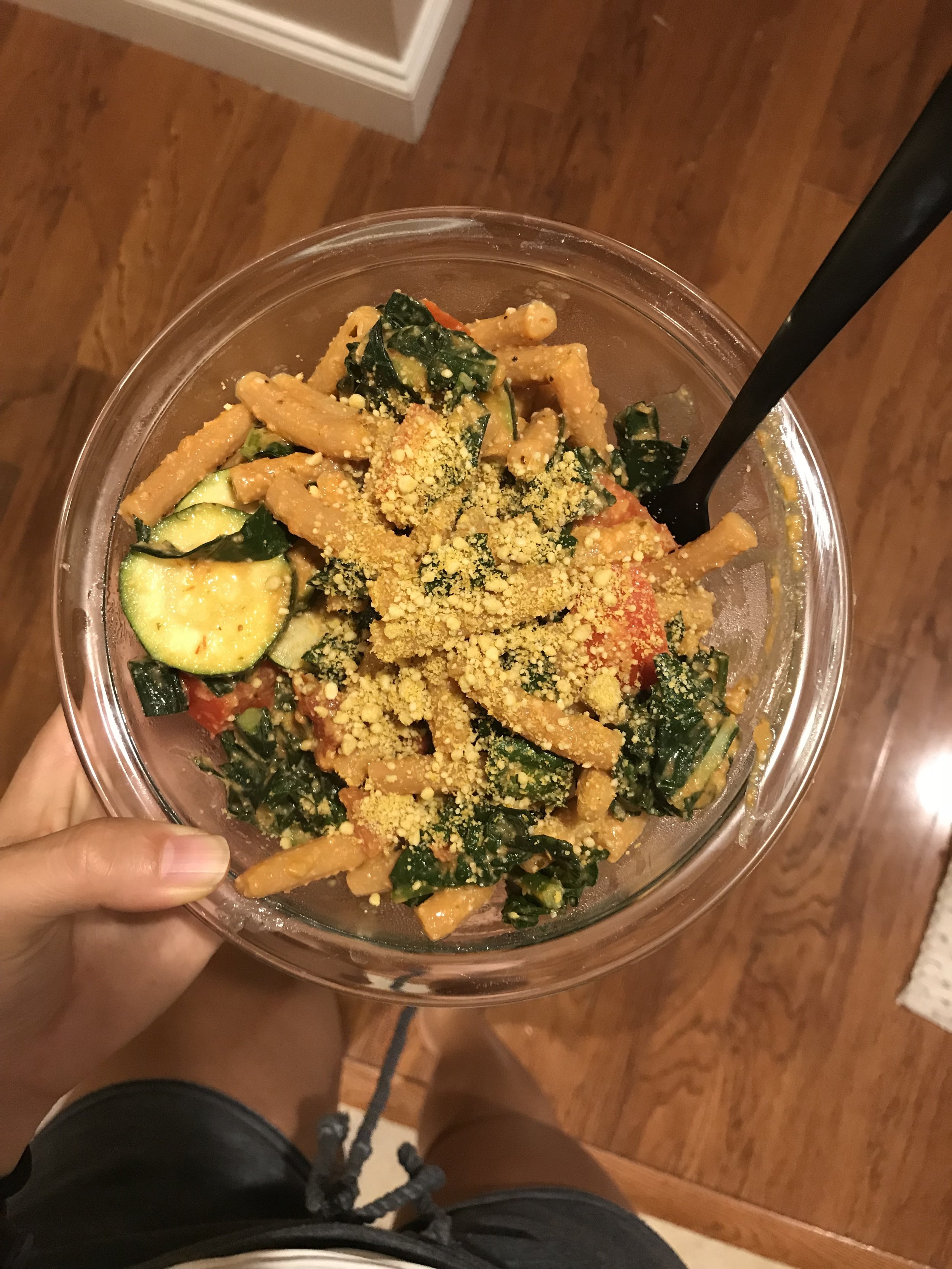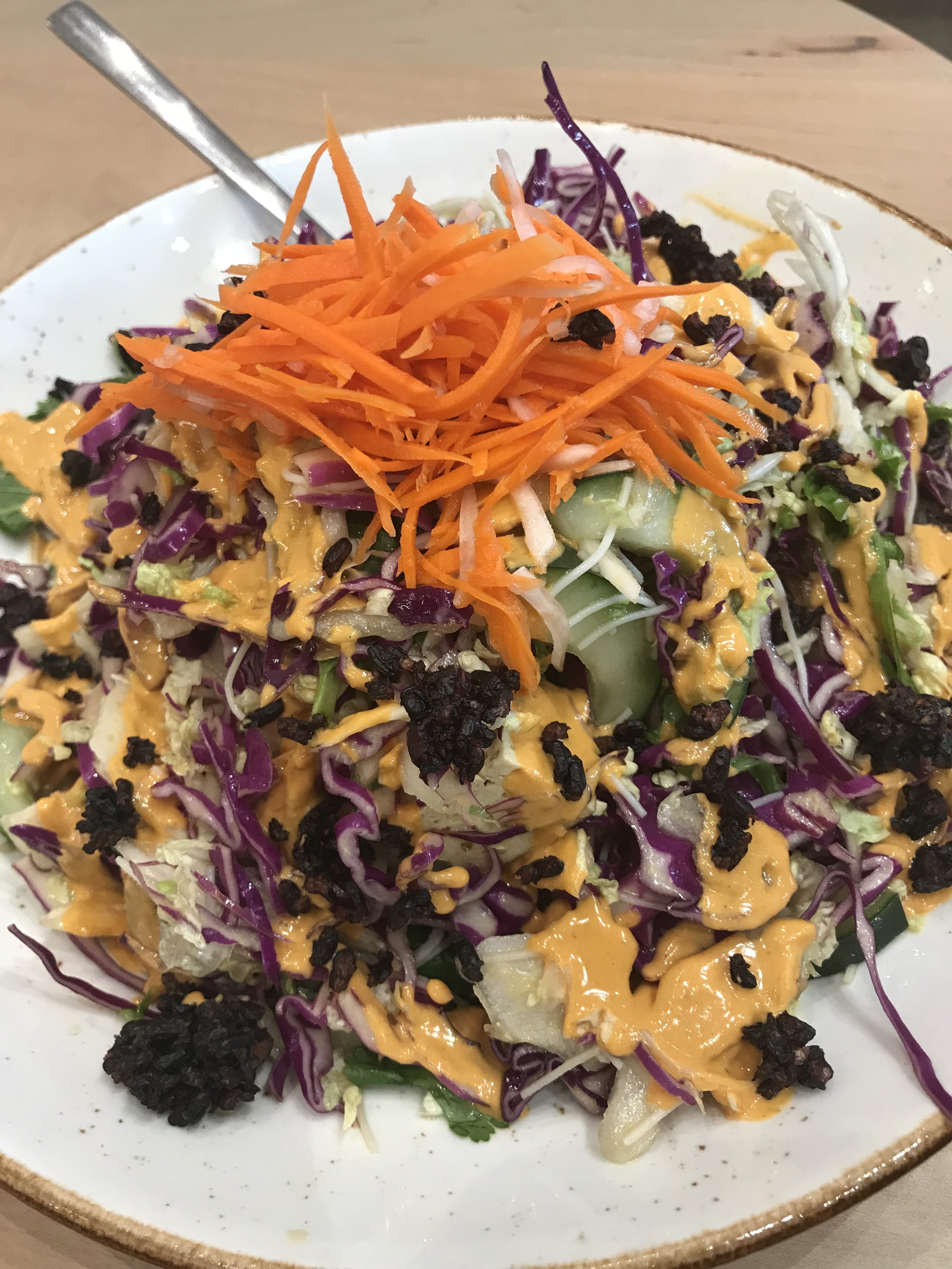Why I eat 2500 Calories a Day to Stay Healthy
Why I eat 2500 calories a day
by Christie Wang
Imagine the scenario. You’re at brunch with your besties, post spin class, of course. You all order and when the food comes you (covertly) glance at everyone’s plates to see how big the portion sizes are. And at the end of the meal, you, again covertly, compare how much each girl has finished. And if you’ve eaten the least, there’s a little extra pride. Or maybe, if you were hungry and ate all your food, you overcompensate and you shame your friends for not finishing their food. There’s been too many times we’ve glorified eating less, or even eating more. Think about it, food, what we consume and how much we consume, is attached to who we think we are. We’re obsessed with eating clean, eating the right amount of macros or calories to look a certain way. And how we look means a lot.
For a long time, I related to this scenario heavily. I still do. But, as I got more and more interested in fitness and nutrition and became an amateur “athlete” myself, I became frustrated with this norm. Because I eat a LOT more than the average girl. I always have. And for a long time, I didn’t know how to deal with that. So, after a few stints of dieting and calorie counting where I felt sluggish, tired and constantly cold, I realized that my body was probably craving that amount of fuel for a reason.
As an athlete, fitness professional and overall fitness lover, I move a LOT. I do not have a sedentary job and my job requires a lot of mental energy. I perform best when I’m satiated, well rested and well hydrated. Instead, a lot of time I felt undernourished, exhausted and hazy. So, eventually, I let myself eat more. I tried to listen to my body, and after a few months of that, things felt better. I wasn’t tracking, just eating naturally. I was eating a lot more than my 1600 calorie limit. After this, I tried tracking a few days and realized my intake looks more like 2500 calories a day.
So, how much are you “supposed” to eat in a day to fuel your body to optimal performance?
For example, let’s look at my overall calorie burn as an example. Although this isn’t the most accurate, I’m using my Garmin watch to track calories burned in a day. Yesterday, for example, I burned 3,432 calories total. 1,638 were resting and 1,794 were active calories burned (2 bike rides and 14 mile run).
*This is honestly just an example of a day, as it fluctuates day to day. For all of you serious triathletes and runners, you can probably relate to this.*
To appropriately fuel my body, maintain my weight, and perform optimally, I want to eat the amount of calories I burn. Now, obviously because I do a high level of cardiovascular activity, my calorie burn is high. In reality, eating over 3,000 calories would be very challenging for me. According to Jillian Barnes, a wellness expert and nutritionist based out of Scottsdale, AZ, even bumping my calories by 200-300 calories per day in high protein foods, will help with feeling sluggish or under fueled. For me, that means eating between 2300-2500 calories per day in nutrient dense foods.
“I realized that my body was probably craving that amount of fuel for a reason.”
The next question is what foods should I eat 2500 calories of? Jillian says to focus on nutrient dense foods, focusing having a balance of carbs, proteins and fats in every meal. Because I’m vegan, an ideal meal would include a healthy complex grain (brown rice, quinoa, farro etc), a legume or other protein source (lentils, beans, tofu, tempeh) and mixed veggies (kale, carrots, tomatoes, cucumbers, squash etc). I snack on fruit, granola bars, oatmeal, chia pudding or a smoothie bowl. Around workouts, a combination of protein and fats should be consumed 15-30 minutes before a workout. On the flip side, fats should be avoided for an hour or two after exercise, instead focus on carbs and protein to maximize muscle building and glycogen repletion.
Now, if you’re doubting being able to be a vegan athlete, you’re not alone. A lot of people do! But, from personal experience, I’ve found it is very sustainable. I look to the plethora of other vegan athletes out there as well (Scott Jurek, Rich Roll, NFL players, etc.) I asked Jillian about whether or not she thought it’d be sustainable from a nutritionist's point of view. She said that she believe it was “very sustainable but, you have to be willing to put in the work to eat more, because generally things like fruits/vegetables are lower in calories - and if you're a long distance runner you're burning more calories than the average vegan per day. People get hung up on vegans not being able "to get enough protein," but a combination of different amino acid profiles (what makes up protein) can be just as good as meat. For example, a combination of rice and beans are considered a "complete protein" and are very sustainable as a protein source. As far as carbohydrates go, vegans have that covered in plenty of fruits and vegetables. For healthy fat sources they have avocados, nuts and seeds. Being a vegan athlete is very sustainable.”
To give you an idea of how you could fill your day with healthy vegan foods, I’ve included some photos of my meals in a typical day. Based off of my past history, my breakfasts will average around 400-600 calories, lunch will be 500-600 and dinner will be 700-800 calories. If I ate the high side of all of this, I’d be eating ~2000 calories. So, I’ll add in snacks of a handful of nuts, half an avocado, PB + toast/banana, or some fruit.
Below…
“Burrito Bowl”: Kidney beans, black beans, kale, brown rice, avocado and side of tortilla chips + salsa (est: 700-800 calories)
“Blueberry Granola Bowl”: Homemade granola, kamut puffs, fresh blueberries and homemade oat milk (est: 400-500 calories)
Acai Bowl from Mother Juice (est: 350-550 calories)
Homemade Lentil Stew, Brown Rice, Kale, Fresh Tomatoes (est: 700-800 calories)
Red Lentil Pasta, Kale, Tomatoes, Zucchini Squash + Kelly’s Cheese (est: 600-650 calories)
Bahn Mi Salad from Life Alive
As I mentioned before, the other factors to performance are rest (sleep) and hydration. I’m guilty of under hydrating - before and during a workout. According to the Sports Nutrition Recommendations for 2016, if you are staying hydrated throughout the day, your urine should be clear. If it is not, 4 hours before your run, consume around 15 oz water. Then, 2 hours before your run, if your urine isn't clear, drink another 12 oz. Within 20 minutes of your run, drink another 7-10 oz of water. And, when it comes to sleep, you want to make sure you are sleeping at least 7-8 hours a night, especially the night before and after a hard workout. Recovery takes so much longer than we expect. We all want to push our bodies hard but, oftentimes they need a break to perform optimally.
So moral of the story here all you athletes out there, eat lots of nutrient dense foods (most likely more than you think you need to eat), sleep 7-8 hours a night, and drink up.


